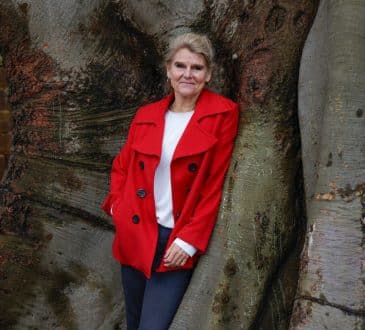Tackling Information Hygiene

According to Statista, the hand sanitizer market will likely increase from $3 billion in 2019 to $7 billion by 2025. Beyond that, other products that relate to one’s hygiene are likely to experience big jumps as well. 2020 served as a masterclass for the importance of practicing personal habits we should have appreciated more fully a long time ago. Unfortunately, though, we as humans have proven not to be incredibly proactive until a crisis arises. As the coronavirus ripped its way through virtually every community on earth, it diverted our attention from the other pandemic – one would that would feed the spread of the actual disease and which left us not knowing who or what to believe about anything.
In 2020, more people became acutely acquainted with the difference between misinformation and disinformation – the latter speaks to the intent to deceive. Someone spreading misinformation is likely to be someone who, in coronavirus terms, would be asymptomatic and unaware they have COVID-19, yet capable of spreading it to others nonetheless. Someone propagating disinformation would represent a person who has tested positive and who, without a care in the world, enters the public square, completely negligent about knowingly infecting their neighbors. Both can be equally dangerous. Spreading conspiracy theories that you know, or should know, to be untrue has proven every bit as hazardous to our mental health as a nation as coronavirus has been to our physical health throughout the world.
Rather than invent brain sanitizer, we’re left with creating ways to trust the available information today, so we can eventually trust the people who share it. Unless that happens, we’re in for every bit as difficult a 2021 as we had in 2020. It’s time to start employing some sensible information hygiene – not censorship, just common sense.
The term “poor information hygiene” was an expression used as part of the 2021 Edelman Trust Barometer (ETB) results, which were released last month. I’ve come to regard the ETB among the essential studies that deserve our attention, which once again shined a bright light on the nature of public trust in institutions (government, media, business, and NGOs). I began following this study several years ago when it became apparent that when we don’t trust our institutions, we have always looked to our peers – our fellow citizens of the country and the world to help us make sense of things.
We have always been able to rely on our peers, co-workers, family members, etc., to discover meaning in whatever situation or circumstances we may find ourselves. Whether we want to buy a book or a car, we look beyond what the manufacturer and professional reviewers have to say. We seek out our peers to learn about their experiences and findings. Interestingly enough, when we do so online, we accept the crowd’s prevailing sentiment as a vital data point in our decision-making process, even though we may not know any of the individuals offering their opinions.
We look to our peers especially at work. According to the 2019 Edelman Trust Barometer, we trusted our co-workers (a person like me 61% or a regular employee 53%) more than the CEO, senior leadership team, or the board of directors when it comes to making sense of what’s happening at the company and determining what it means for the employees. By 2021, we saw that dynamic starting to erode, as the reliability of a person like me dropped to 53% and a regular employee fell to 40% – a sobering trend.
It turns out, only one in four people practice what Edelman described as good information hygiene. Such a practice involves being engaged with the news, avoiding information echo chambers, verifying information, and not amplifying unvetted information. It’s not perfect, but it’s what we have. It’s a start.
The pervasive nature of peer influence is undeniable. While there are countless studies on the subject, you don’t need a pile of them to tell you what your life has shown you time and time again. Since peer influence is such a powerful and pervasive force, it stands to reason that we should not allow it to slip away. Until we start practicing better information hygiene by checking and double-checking the sources and the validity of information before sharing it with others and trusting others will do so as well, we’ll never believe the people sharing it. Employees will be expecting CEOs to lead the way.
It’s time we stopped fighting against one another and started fighting for the truth. It will begin in the workplace. Doing so will require each of us to recognize that a society’s potential doesn’t lie in its top-down civil structure. It’s what runs horizontally that gives strength and stability to what’s vertical – a force of nature that will help us restore our faith in one another and rid the earth of COVID-19 forever.
Have you read?
World’s Best Countries – Cultural Heritage Influence.
World’s Best Countries – Retirement.
World’s Most Forward-Thinking Countries.
World’s Best Countries For Raising Kids.
World’s Most Entrepreneurial Countries.
Add CEOWORLD magazine to your Google News feed.
Follow CEOWORLD magazine headlines on: Google News, LinkedIn, Twitter, and Facebook.
This report/news/ranking/statistics has been prepared only for general guidance on matters of interest and does not constitute professional advice. You should not act upon the information contained in this publication without obtaining specific professional advice. No representation or warranty (express or implied) is given as to the accuracy or completeness of the information contained in this publication, and, to the extent permitted by law, CEOWORLD magazine does not accept or assume any liability, responsibility or duty of care for any consequences of you or anyone else acting, or refraining to act, in reliance on the information contained in this publication or for any decision based on it.
Copyright 2024 The CEOWORLD magazine. All rights reserved. This material (and any extract from it) must not be copied, redistributed or placed on any website, without CEOWORLD magazine' prior written consent. For media queries, please contact: info@ceoworld.biz
SUBSCRIBE NEWSLETTER








